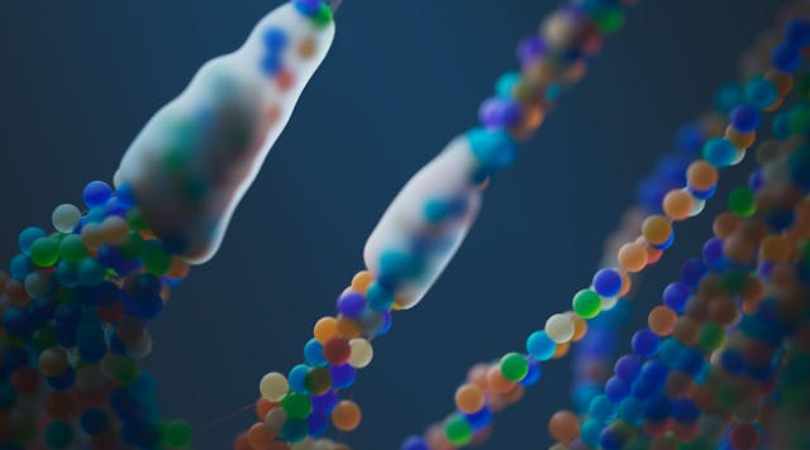Scientists have successfully restored the lost uricase enzyme, a key breakthrough in combating fructose-induced fat formation. This discovery offers new hope for preventing obesity and metabolic disorders by targeting how the body processes sugar and stores fat.
Limited Quantities Available! Order Today and Enjoy Free Shipping on Orders Over $100!
Breaking the Fatigue Cycle: 7 Science-Backed Ways to Restore Energy

Fatigue has become a modern epidemic, leaving many searching for solutions to restore their energy levels. Whether you experience constant sluggishness or find yourself crashing mid-afternoon, understanding the root causes of fatigue is key to breaking the cycle. Let’s explore seven science-backed strategies to boost energy naturally and sustainably.
1. Optimize Blood Sugar with Balanced Meals
One of the biggest culprits behind energy crashes is unstable blood sugar. Spikes and dips in glucose levels lead to rapid fluctuations in energy and mood. To maintain steady energy:
- Focus on protein-rich meals with healthy fats and fiber.
- Avoid refined sugars and processed carbohydrates.
- Incorporate whole foods like eggs, avocados, nuts, and fibrous vegetables to keep blood sugar stable.
Fructose plays a major role in energy dysregulation by driving insulin resistance and increasing fat storage in the liver, which can impair mitochondrial function. Reducing high-fructose foods and controlling its metabolism may be key to sustained energy.
2. Improve Sleep Quality and Circadian Rhythm
Poor sleep doesn’t just leave you groggy—it disrupts hormone balance and metabolism, making it harder for your body to produce energy efficiently.
- Stick to a consistent sleep schedule.
- Reduce blue light exposure in the evening.
- Optimize magnesium intake, as it supports deep sleep and mitochondrial function.
- Consider adaptogens like ashwagandha to lower cortisol levels and promote relaxation.
Fructose metabolism also interferes with sleep regulation by increasing uric acid and reducing ATP availability in brain cells, leading to restlessness and poor recovery.
3. Manage Stress to Reduce Energy Drain
Chronic stress depletes your energy reserves by keeping cortisol levels elevated. Over time, this impairs mitochondrial function and leads to burnout. Effective stress management techniques include:
- Mindfulness meditation and breathwork.
- Daily movement, such as yoga or walking.
- Prioritizing social connections to boost mood and resilience.
Fructose can increase stress sensitivity by causing inflammation in fat cells, which raises cortisol levels and leads to fatigue.
4. Support Mitochondrial Health with Key Nutrients

Mitochondria are the powerhouses of your cells, responsible for converting food into usable energy (ATP). Certain nutrients directly support mitochondrial function, including:
- CoQ10: Essential for ATP production.
- L-Carnitine: Helps transport fatty acids into mitochondria for energy.
- B Vitamins: Support metabolism and red blood cell production.
- Magnesium: Crucial for ATP synthesis and muscle function.
Excess fructose burdens mitochondria by increasing oxidative stress and reducing ATP efficiency, making energy production less effective.
5. Hydrate with Electrolytes for Cellular Energy
Dehydration leads to fatigue, brain fog, and poor performance. Even mild dehydration can slow metabolism and impair cognitive function. To stay hydrated:
- Drink mineral-rich water and include natural electrolytes like sodium, potassium, and magnesium.
- Avoid excess caffeine and alcohol, which can deplete hydration levels.
- Consider adding a pinch of sea salt to your water for better mineral balance.
Fructose accelerates dehydration by stimulating vasopressin, a hormone that encourages water retention but paradoxically leads to cellular dehydration and impaired energy production.
6. Use Targeted Supplements to Boost Energy
Several natural compounds have been shown to enhance energy production and mental clarity:
- Creatine: Improves muscle energy and cognitive performance.
- Rhodiola Rosea: A powerful adaptogen that helps fight fatigue and improves stamina.
- Luteolin: A flavonoid found in Sugarshield that inhibits fructokinase, helping to prevent energy crashes associated with fructose metabolism.
- Tart Cherry Extract: Aids in reducing inflammation and oxidative stress, both of which contribute to fatigue.
7. Reduce Fructose Load to Prevent Energy Crashes
Emerging research suggests that excessive fructose consumption disrupts mitochondrial function, increases fat accumulation in the liver, and contributes to metabolic dysfunction—all of which can leave you feeling perpetually drained. By reducing fructose intake and supporting metabolic pathways that regulate its effects, you can break the cycle of energy depletion.
The Bottom Line
If you're struggling with fatigue, addressing blood sugar stability, sleep quality, stress management, mitochondrial health, and hydration can all play crucial roles in restoring energy. However, fructose metabolism is deeply tied to each of these issues. High fructose intake contributes to insulin resistance, impairs mitochondrial energy production, worsens sleep, elevates stress hormones, and disrupts hydration balance.
By mitigating fructose’s metabolic burden, Sugarshield helps address fatigue at its core. Blocking fructokinase with Sugarshield improves mitochondrial efficiency, stabilizes blood sugar, supports hydration, and reduces oxidative stress—offering a single, powerful solution to multiple causes of low energy. If you're looking for a science-backed way to break the fatigue cycle, starting with Sugarshield is an effective first step.
Disclaimer: The information in this blog reflects personal opinions, experiences, and emerging research. It is not intended as medical or professional advice and should not replace consultation with qualified professionals. The accuracy of this content is not guaranteed. Always seek guidance from a licensed expert before making any health-related decisions.


Chris | 🔬 Founder of LIV3 Health
⚡ A keen researcher dedicated to uncovering the root causes of metabolic dysfunction, the key driver of chronic conditions behind 70% of global deaths. His findings led to science-backed, natural solutions designed to inhibit fructose metabolism.
📢 Follow me on Reddit for insights on metabolic health and the future of wellness! -






